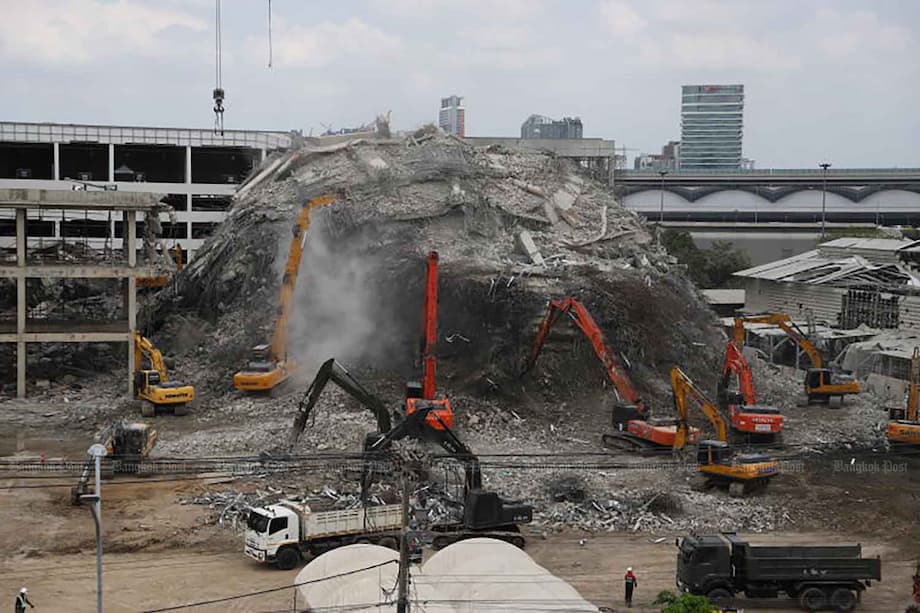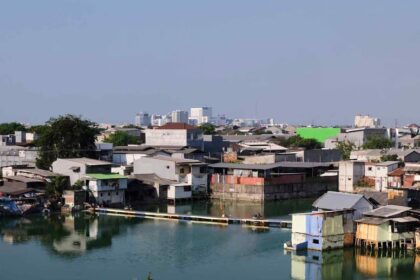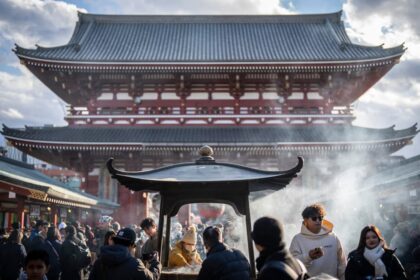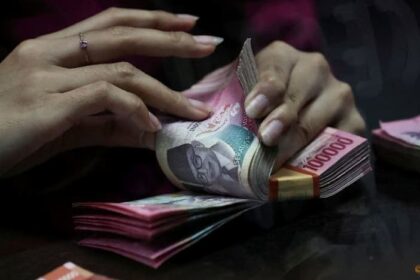Thailand’s State Audit Office: Transparency Award Sparks Outrage Amid Scandal
The State Audit Office (SAO) of Thailand, the government agency tasked with scrutinizing public spending, has found itself at the center of a national controversy. In August 2025, the SAO was named the most transparent independent organization in the country’s annual Integrity and Transparency Assessment (ITA), scoring 94.64 out of 100. Yet, this accolade arrived just months after the agency’s new 30-storey headquarters in Bangkok collapsed during an earthquake, killing dozens and exposing a web of alleged corruption, procurement failures, and questionable oversight. The juxtaposition of the SAO’s top transparency ranking with the ongoing scandal has ignited public outrage, ridicule, and renewed debate about the credibility of Thailand’s anti-corruption efforts.
How Did the SAO Earn a Transparency Award?
The Integrity and Transparency Assessment (ITA) is an annual evaluation conducted by the National Anti-Corruption Commission (NACC), Thailand’s main anti-graft body. The ITA surveys over 1.35 million stakeholders across more than 8,300 government agencies, aiming to align with national anti-corruption strategies and improve Thailand’s standing in the global Corruption Perceptions Index (CPI). In 2025, the SAO topped the independent agency category, narrowly beating out the Election Commission and the NACC itself.
The ITA methodology is based on three pillars:
- Internal Integrity and Transparency: Surveys of agency staff on ethics, procedures, and internal controls.
- External Integrity and Transparency: Feedback from external stakeholders, such as contractors and citizens, on fairness and openness.
- Open Data Integrity and Transparency: Assessment of how much information is publicly disclosed and accessible.
According to the SAO, the process is rigorous and multi-dimensional, using academic and statistical methods to ensure fairness. The agency admitted, however, that it scored below the benchmark in “system improvement,” pledging to address this weakness.
Public Skepticism and Social Media Backlash
Despite the SAO’s defense, the award was met with widespread skepticism. Social media erupted with sarcastic commentary, with many users questioning how an agency embroiled in a construction scandal could be deemed the most transparent. Rukchanok Srinork, a Bangkok MP from the People’s Party, mocked the ranking on Facebook, writing that the public must have “had a good laugh” at the result. She criticized the ITA’s methodology, noting that agencies are only compared within their own categories, which can skew the results and limit meaningful comparison.
“This is the agency that audits government spending, yet they need to audit themselves first,” one frustrated taxpayer posted online.
Many netizens pointed out that, despite high scores, ordinary citizens rarely feel included in the process or see tangible benefits from such assessments. The credibility of the NACC and its ITA process has come under fire, especially after previous years’ awards also sparked controversy.
The Building Collapse: A Tragedy Exposes Deeper Problems
The controversy over the SAO’s transparency award cannot be separated from the catastrophic collapse of its new headquarters in March 2025. The 30-storey tower, still under construction in Bangkok’s Chatuchak district, was the only building in the city to collapse during a magnitude 7.7 earthquake centered in Myanmar. The disaster killed at least 47 people and injured nine, including many migrant workers and vocational students working on the site.
Investigations quickly revealed a series of alarming failures:
- Substandard Construction Materials: Steel bars supplied by Xin Ke Yuan, a Chinese manufacturer, failed national safety standards. Tests showed that the steel used in the building did not meet required specifications, raising concerns about quality control and regulatory oversight.
- Procurement Irregularities: The construction contract was awarded to a joint venture between Italian-Thai Development and China Railway No.10 (Thailand) Co., Ltd. Authorities later arrested Zhang Chuanling, a director of the Chinese firm, on charges of bid rigging, foreign ownership violations, and construction malpractice. Financial records revealed over 2 billion baht in suspicious transactions linked to the project.
- Lavish and Questionable Spending: Civic groups exposed extravagant spending on luxury furniture and fittings for the building, including conference chairs costing nearly 100,000 baht each and carpets priced at over 100,000 baht apiece. The revelations fueled public anger over the apparent misuse of taxpayer money.
The collapse has become a symbol of broader problems in Thailand’s public procurement system, where cost-cutting, lack of oversight, and corruption can have deadly consequences.
Investigations and Legal Fallout
Thai authorities have launched multiple investigations into the collapse. The Department of Special Investigation (DSI) is examining allegations of forged engineering signatures, use of substandard materials, and repeated project modifications. The arrest of the Chinese executive and the raid on the steel supplier’s factory have expanded the probe to include other government projects potentially affected by inferior materials.
Justice Minister Tawee Sodsong emphasized, “The case is being handled seriously and fairly, with no individuals above scrutiny. The Thai government has committed to full transparency, asserting that all culpable parties, corporate or individual, will be held accountable.”
The scandal has also prompted calls for stricter regulation of foreign contractors and greater scrutiny of “zero-coin industries”—companies accused of cutting corners and compromising public safety for profit. Authorities have seized hundreds of millions of baht worth of inferior steel intended for infrastructure projects, and the future of certain steel production technologies is now under review.
Transparency in Thailand: A Systemic Challenge
The SAO scandal is not an isolated incident. Thailand has long struggled with issues of corruption and lack of transparency in both the public and private sectors. The country currently ranks 109th out of 180 in Transparency International’s Corruption Perceptions Index, reflecting persistent challenges in governance and accountability.
Major procurement decisions, especially in sectors like defense and infrastructure, are often exempt from independent scrutiny. The military’s political influence has further weakened legislative oversight, and loopholes in laws allow for opaque spending and limited public disclosure. Even in religious institutions, such as Buddhist temples, scandals involving misuse of funds and lack of financial transparency have eroded public trust.
Comparisons to international standards highlight the risks. Sovereign wealth funds and state-owned enterprises in many countries have become vehicles for corruption when oversight is weak and reporting is minimal. Experts argue that only robust reforms—such as independent audits, transparent reporting, and enforceable anti-corruption measures—can restore public confidence.
The ITA’s Role and Limitations
The ITA is intended as a tool to encourage preventive measures against corruption and promote integrity in the public sector. However, critics argue that its methodology—relying on self-assessment, stakeholder surveys, and open data checks—can be gamed or manipulated, especially when agencies are only compared within narrow categories. The fact that the SAO, under investigation for procurement failures, could still achieve the highest transparency score has led many to question the assessment’s real-world impact.
As one civic group noted, “The ITA is supposed to measure transparency, but when the agencies themselves question its validity, it’s clear that reforms are needed.”
Even the SAO itself had previously criticized the ITA, saying its tools failed to measure genuine transparency. The NACC’s own “No Gift Policy” was undermined when one of its executives was arrested for bribery, further damaging the credibility of anti-corruption efforts.
Public Trust and the Path Forward
The fallout from the SAO scandal has intensified calls for greater transparency and accountability across all levels of government. Civic groups, journalists, and ordinary citizens are demanding:
- Independent Audits: Regular, external reviews of agency spending and procurement processes.
- Public Disclosure: Making financial records, contracts, and project documents accessible to the public.
- Stricter Oversight: Closing legal loopholes that allow for exemptions and lack of scrutiny, especially in high-risk sectors.
- Accountability for Wrongdoing: Ensuring that individuals and companies responsible for corruption or negligence face real consequences.
Some experts suggest that Thailand should adopt international best practices, such as the Santiago Principles for sovereign wealth funds, but with enforceable requirements and independent monitoring. Others argue that only a cultural shift—where transparency and integrity are valued and rewarded—will bring lasting change.
For now, the SAO’s transparency award stands as a stark reminder of the gap between official assessments and public perception. Until the underlying issues of procurement, oversight, and accountability are addressed, such accolades may do little to restore faith in Thailand’s institutions.
In Summary
- The State Audit Office (SAO) of Thailand received a top transparency award in 2025, despite being embroiled in a major construction scandal.
- The SAO’s new headquarters collapsed during an earthquake, killing dozens and exposing alleged corruption, substandard materials, and procurement failures.
- Public reaction has been overwhelmingly negative, with widespread skepticism about the credibility of the transparency assessment process.
- Investigations have led to arrests, raids, and expanded scrutiny of other government projects and contractors.
- The scandal highlights systemic challenges in Thailand’s fight against corruption, including weak oversight, legal loopholes, and lack of public trust.
- Civic groups and experts are calling for independent audits, greater public disclosure, and stricter accountability measures to restore confidence in public institutions.












